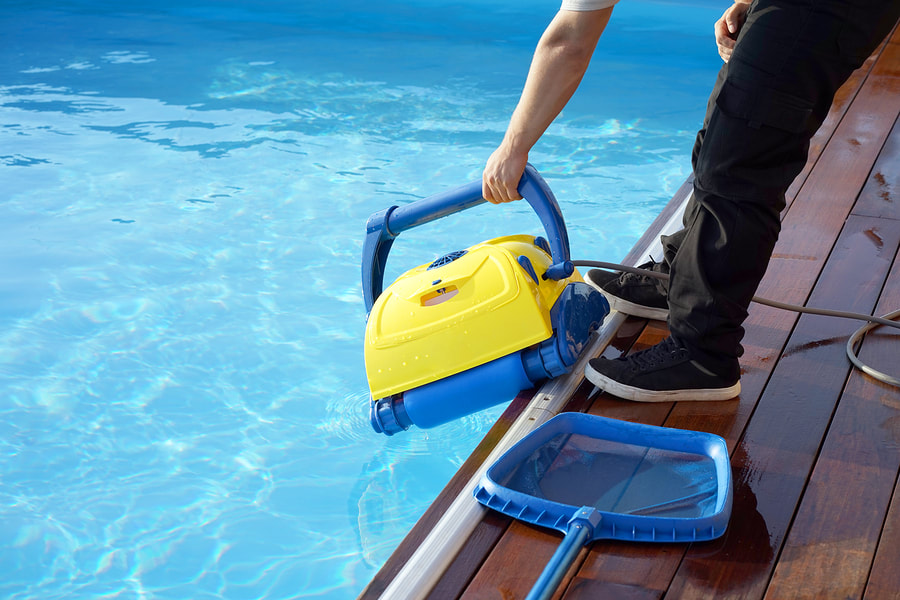As the temperature rises and summer beckons, the allure of a sparkling pool becomes irresistible. Whether it’s a hotel, a community center, or a private facility, maintaining a clean and safe swimming pool is not just about aesthetics; it’s a commitment to the health and well-being of everyone who takes a refreshing dip. In this blog, we’ll explore the essential steps to ensure your pool remains a health and hygiene hero, providing a safe and enjoyable experience for both guests and employees.
The Importance of Pool Hygiene:
A swimming pool is a haven for relaxation, exercise, and fun. However, it can quickly turn into a breeding ground for bacteria and other contaminants if hygiene is not prioritized. The consequences of poor pool hygiene can range from mild irritations to severe health issues, affecting both guests and staff.
- Waterborne Illnesses: Stagnant or improperly treated water can become a breeding ground for harmful microorganisms, including bacteria, viruses, and parasites. Exposure to these contaminants can lead to waterborne illnesses, causing symptoms such as gastrointestinal issues, skin infections, and respiratory problems.
- Chemical Imbalances: Maintaining the right chemical balance in the pool is crucial. Insufficient disinfectant levels or incorrect pH levels can compromise the effectiveness of water treatment, leading to reduced sanitization and an increased risk of waterborne diseases.
- Safety Hazards: Poor pool hygiene not only affects water quality but also introduces safety hazards. Slippery surfaces, inadequate lifeguard training, and improper pool maintenance can contribute to accidents, injuries, and even drowning incidents.
Essential Steps for Pool Health and Hygiene:
- Regular Water Testing: Consistent water testing is the cornerstone of pool maintenance. Regularly check and adjust chemical levels, including chlorine, pH, alkalinity, and calcium hardness. This helps maintain optimal water quality, preventing the growth of harmful microorganisms.
- Proper Filtration: The pool’s filtration system plays a crucial role in removing debris, bacteria, and other contaminants from the water. Ensure that the filtration system is functioning correctly and perform regular maintenance, such as backwashing filters, to keep it in top condition.
- Routine Cleaning and Skimming: Regularly skim the pool surface to remove leaves, insects, and other debris. Additionally, vacuum the pool bottom and clean the pool walls to prevent the accumulation of algae and other contaminants. Proper cleaning practices contribute to both the aesthetic appeal and the sanitary conditions of the pool.
- Shower Before Swimming: Encourage guests and employees to shower before entering the pool. This simple step helps remove sweat, oils, and other substances from the body, reducing the introduction of contaminants into the pool water.
- Effective Chlorination: Chlorine is a powerful disinfectant that helps eliminate bacteria and other microorganisms in the water. Maintain the appropriate chlorine levels based on usage and environmental factors. Regularly shock the pool to address chloramine buildup and maintain water clarity.
- Proper Pool Circulation: Adequate water circulation is essential for distributing chemicals evenly and preventing stagnation. Ensure that the pool’s circulation system is optimized to provide thorough water turnover, preventing localized areas from having poor water quality.
- Lifeguard Training and Supervision: If your facility has lifeguards, ensure they are well-trained and certified. Lifeguards play a crucial role in preventing accidents and responding effectively in emergencies. Regular training sessions and drills contribute to a vigilant and prepared lifeguard team.
- Educational Signage: Display clear and informative signage around the pool area. Provide guidelines on showering before swimming, rules for pool usage, and emergency procedures. Educating guests and employees enhances awareness and fosters a culture of responsible pool use.
- Maintain Proper Water Temperature: The ideal water temperature for a swimming pool is generally between 78 and 82 degrees Fahrenheit. This range not only ensures the comfort of swimmers but also helps maintain the effectiveness of chemical treatments.
- Regular Professional Inspections: Schedule regular inspections by professional pool maintenance experts. These inspections can identify potential issues before they escalate, ensuring that the pool’s infrastructure and systems are in good working order.
Promoting a Culture of Pool Hygiene:
Creating a culture of pool hygiene involves more than just routine maintenance; it requires the collective effort of staff and guests alike.
- Staff Training and Awareness: Train your staff, including lifeguards, on proper pool maintenance procedures and hygiene protocols. Foster a culture of awareness and responsibility among employees, emphasizing the importance of their role in maintaining a safe and clean pool environment.
- Guest Education: Provide information to guests about pool hygiene expectations and guidelines. Display informational posters, distribute brochures, and include relevant details in welcome materials. Educating guests empowers them to contribute to the cleanliness and safety of the pool.
- Prompt Response to Issues: Address any pool maintenance issues promptly. Whether it’s a malfunctioning filter, a broken drain cover, or a chemical imbalance, swift action minimizes risks and ensures the continued enjoyment of the pool.
- Community Engagement: If your pool is part of a community or residential complex, engage with residents to build a sense of shared responsibility. Encourage open communication about pool-related concerns and involve the community in initiatives to maintain a hygienic and safe pool environment.
Conclusion:
A well-maintained swimming pool is a health and hygiene hero, providing a refreshing escape for guests and a safe workplace for employees. By implementing regular maintenance practices, emphasizing staff training, and promoting a culture of awareness among guests, you contribute to the overall well-being of everyone who enjoys the pool.
Remember, a clean and safe pool is not just a luxury but a necessity. It represents a commitment to health, hygiene, and the enjoyment of a shared space. So, as the summer sun beckons, let your pool be a beacon of relaxation and fun, maintained to the highest standards of health and safety for all to enjoy.
Riverside County Pools https://www.riversidecountypools.com/
